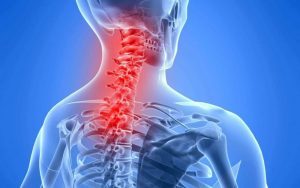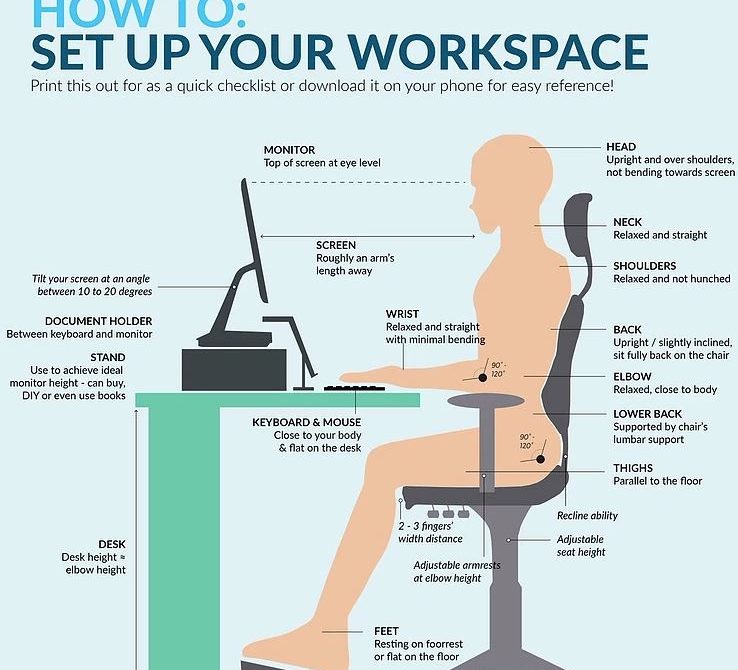If your pain in the neck, is quite frankly a pain in the neck, you’re not alone! One fifth of Australian adults suffer significantly from the condition.
What Neck Pain Looks Like
- Pain anywhere between the head and upper back
- It may be one sided or both sides (bilateral)
- Pain may spread down the shoulder and upper arm
- May be associated with a vague headache

- It might be hard to turn your head left or right and looking up and down may also be limited
- It may be a gradual onset over a few days or a sudden twinge on a quick movement
- Pins and needles or tingling in the arms or hands may be caused by neck pain and is a serious sign that should be investigated with a visit to your Physiotherapist or GP
Common Myths about Neck Pain
- That car accident/concussion/fall I had years ago couldn’t possibly be contributing – it was so long ago!
Recent research into whiplash has demonstrated that 20 years after the initial injury, patients who suffered whiplash have an increased incidence of shoulder stiffness, headache and arm pain (Watanabe et al 2021).
Whiplash is an injury to the neck caused by a sudden vigorous movement of the head on the neck forward/backwards or sideways. This traumatic injury is common in falls, car accidents, sporting injuries (AFL and horse riding are common examples). Whiplash causes pain that changes the way our deep (postural) muscles support our head and neck in synergy with the more superficial, movement-generating muscles. So while the original pain may resolve, our movement patterns are changed and we are at increased risk of neck pain recurrence and problems in nearby areas like the upper back and shoulder for example.
A review of your injury history, no matter how old, is relevant for not just for your neck pain, but for how they have impacted your posture and whole body function since.
2. My neck is a bit stiff, but it’s not sore. My actual problem is pain in both my shoulders/both my elbows.
The nerves in your neck supply the muscles and skin of your arms. When a nerve is irritated in your neck (from poor posture, repetitive activities or an old whiplash injury), it is common for you to experience pain in your arms even if your neck is pain free.
If you’ve tried massaging out your elbow or shoulder pain (especially if it impacts both sides), with limited relief it could be your neck that is the cause.
A dysfunctional neck may not be painful, but identifying it could be the key to unlocking the answer to your shoulder, upper back tension or headaches.
3. I know my work station isn’t perfect, but I don’t think it’s having that big an impact on my neck.
About a quarter of our life each week is spent at work (if you’re full time). Another 15% or more of our time is spent on social media or watching TV. How good is your posture when you’re scrolling through your phone, at your computer and watching TV? It all adds up. Even when you’re doing nothing, you’re doing something – you’re sitting, or standing. Your posture matters and contributes to the load and strain for your neck. Likewise, if you are constantly carrying heavy items (bags etc) on the same side, if you always reach in one direction (i.e. to the phone, printer, mouse too far away) – it all adds up. If you don’t believe me – try changing something to improve your posture and workstation and see how you feel over the next week.
Our physiotherapists are trained to hone in on the factors that are most likely giving you a pain in the neck.

Common Neck Pain Conditions that We Treat
- Cervical (neck) vertebra, joints irritation
- Osteoarthritis of the neck
- Degeneration of the intervertebral discs
- Nerve entrapment
- Muscle spasm (upper traps, neck muscles)
Try This
- If your pain starts after a specific incident (fall, car accident) seek the advice of your physiotherapist or GP as soon as possible
- Heat (hot packs, warm showers) will often relieve tired, stressed muscles. Try applying for 20 minutes at a time in a comfortable position
- Collars are not usually recommended
- Discuss pain relief options with your pharmacist
- Most episodes will clear up in a couple days – if it persists longer, seek help from your physiotherapist or GP
- Review your workstation
- Take breaks every 15 – 30 minutes from your desk to move and stretch.
How We Help
- We listen to your story including history, aggravating and easing factors and perform a detailed assessment of your level of function to provide a diagnosis
- Provide advice and education about what to expect and how to optimise your recovery
- Give you exercises and self-management strategies
- Provide pain relief with specific manual therapy exercises
- Identify and address contributing factors such as postural concerns that have contributed to the problem
- Can advise on work-station and computer setup – a common trigger for neck pain
- Yoga is a great way to move your body through its full range of motion, restoring mobility and function and reducing stress. Consistent, weekly practice makes all the difference.
References
Scott, K. (2019) 8 surprising facts about how we spend our time. Accessed 8th October 2021 from: https://www.abc.net.au/everyday/surprising-facts-about-how-we-spend-our-time/10188202
Vijiaratnam, N., Williams, D., Bertram, K. (2018). Neck pain: What if it is not musculoskeletal? Australian Journal of General Practice. Volume 47, Issue 5, May 2018. Accessed 9th October 2021 from https://www1.racgp.org.au/ajgp/2018/may/neck-pain
Watanabe, K, Daimon, K., Fujiwara, H., Nishiwaki, Y., Okada, E., Nojiri, K., Watanabe, M., Katoh, H., Shimizu, K., Ishihama, H., Fujita, N., Ichihara, D., Tsuji, T., Nakamura, M., Matsumoto, M. (2021) The Long-term Impact of Whiplash Injuries on Patient Symptoms and the Associated Degenerative Changes Detected Using MRI, SPINE: June 1, 2021 – Volume 46 – Issue 11 – p 710-716. doi: 10.1097/BRS.0000000000003901. Accessed 8th October 2021: https://journals.lww.com/spinejournal/Abstract/2021/06010/The_Long_term_Impact_of_Whiplash_Injuries_on.6.aspx
Wheeler, T (2020). Neck Strain and Whiplash. Accessed 8th Oct 2021 from: https://www.webmd.com/back-pain/neck-strain-whiplash

